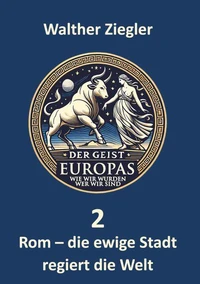The philosopher Epicurus (341-270 BC) has been controversial since antiquity. His provocative key idea is of compelling simplicity. Every human being possesses, by nature, an internal compass. In order to be happy he must do what causes him pleasure and joy and avoid what causes him unpleasure and harm. He writes: "Pleasure is the starting point and goal of living blessedly [...] (It is) our first innate good, and [...] our starting point for every choice and avoidance." Already newborns follow this "pleasure principle".
But this discovery, which might at first seem so obvious, struck Epicurus's contemporaries as a monstrous provocation. The notion that the highest goal of life is enjoying pleasure stands in stark contrast to the then-established teachings of Plato, Aristotle and the Stoics. These latter saw reason and a life lived by reason as the highest goal of Man. Because Epicurus accepted women into his school and even had a love affair with one of them, his contemporaries called him a "glutton" and "sex fiend".
The Greek poet Timon described him as "doggish", the Stoic Epictetus as a "wastrel". Christian authors later even called him the Antichrist. But these critiques are fundamentally false, because beyond a superficial striving for pleasure, Epicurus's deeper concern was a lifelong, painstaking "care of the self". His questions, then, remain burningly relevant. What are the basic human needs whose satisfaction yields a happy life? Which needs are really necessary to life and which not? How, concretely, should we deal with these needs: for example with the need for food, drink, sexual intercourse and friendship? The book contains almost a hundred quotes from this charismatic ancient philosopher.
It appears as part of the beloved series "Great Thinkers in 60 Minutes" which has now been translated worldwide into six languages.
The philosopher Epicurus (341-270 BC) has been controversial since antiquity. His provocative key idea is of compelling simplicity. Every human being possesses, by nature, an internal compass. In order to be happy he must do what causes him pleasure and joy and avoid what causes him unpleasure and harm. He writes: "Pleasure is the starting point and goal of living blessedly [...] (It is) our first innate good, and [...] our starting point for every choice and avoidance." Already newborns follow this "pleasure principle".
But this discovery, which might at first seem so obvious, struck Epicurus's contemporaries as a monstrous provocation. The notion that the highest goal of life is enjoying pleasure stands in stark contrast to the then-established teachings of Plato, Aristotle and the Stoics. These latter saw reason and a life lived by reason as the highest goal of Man. Because Epicurus accepted women into his school and even had a love affair with one of them, his contemporaries called him a "glutton" and "sex fiend".
The Greek poet Timon described him as "doggish", the Stoic Epictetus as a "wastrel". Christian authors later even called him the Antichrist. But these critiques are fundamentally false, because beyond a superficial striving for pleasure, Epicurus's deeper concern was a lifelong, painstaking "care of the self". His questions, then, remain burningly relevant. What are the basic human needs whose satisfaction yields a happy life? Which needs are really necessary to life and which not? How, concretely, should we deal with these needs: for example with the need for food, drink, sexual intercourse and friendship? The book contains almost a hundred quotes from this charismatic ancient philosopher.
It appears as part of the beloved series "Great Thinkers in 60 Minutes" which has now been translated worldwide into six languages.

 , qui est-ce ?
, qui est-ce ?